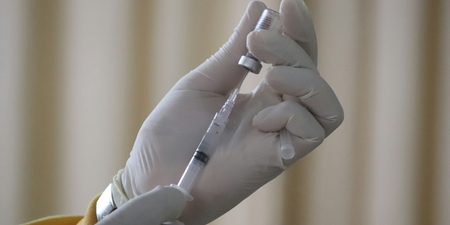“We can only change the conversation around HIV through open and ongoing communication.”
The majority of people living with HIV in Ireland feel comfortable sharing their status, a new survey has revealed.
New research published ahead of World AIDS Day (December 1) shows that 56% of respondents in Ireland living with HIV are comfortable sharing their status – a considerably higher proportion than North America (41%), the UK (37%), and the rest of Europe 28%.
The study, conducted by GSK and ViiV Healthcare, shows that almost three quarters (72%) of female respondents are comfortable sharing their HIV status compared to a third of Irish men (33%).
Those worried about sharing their status cite fears of being treated differently, worry around relationships, and concerns that they might lose their job.
Liz Martin was diagnosed with HIV in 1991 when she was 24-years-old. At the time, she was a single parent with four young children living in the west of Ireland. After her diagnosis, she felt “totally isolated.”
“I knew no one,” she says. “At the time, information about the condition was limited. There were no HIV clinics in Galway.
“Thankfully, things have changed, there’s more information and supports available to the HIV community now. I want to encourage others living with HIV to reach out and seek support, especially at this difficult time of increased social distancing. Please don’t feel alone, or that your voice doesn’t matter – it does.”
Liz suggests speaking to a doctor about how you’re feeling physically and emotionally and, if possible, to friends and family.
“We can only change the conversation around HIV through open and ongoing communication,” she says.
This new research is supported by HIV Ireland and Sexual Health West in a bid to encourage people living with HIV (PLHIV) to seek help when they need it, and to tackle the stigma that still exists around the condition.
Stephen O’Hare, CEO of HIV Ireland, adds that the new findings show an increase in “resilience and optimism” among those living with HIV in Ireland.
“There remains, however, marked differences in reported experiences of living with HIV relating to gender and sexual orientation,” he says.
“In order to build successfully on these findings, we must listen closely and ensure that the voices of PLHIV are prominent in decisions about care. We must acknowledge the validity of these experiences and redouble our efforts to tackle stigma and discrimination relating to HIV in all areas of society.”
Over the years, new and successful treatments have allowed PLHIV to live long lives. Health experts hope that increased understanding of the condition and the continued training of healthcare professionals will encourage more people living with HIV to share their status.
You can find out more about living with HIV in Ireland here.




















































